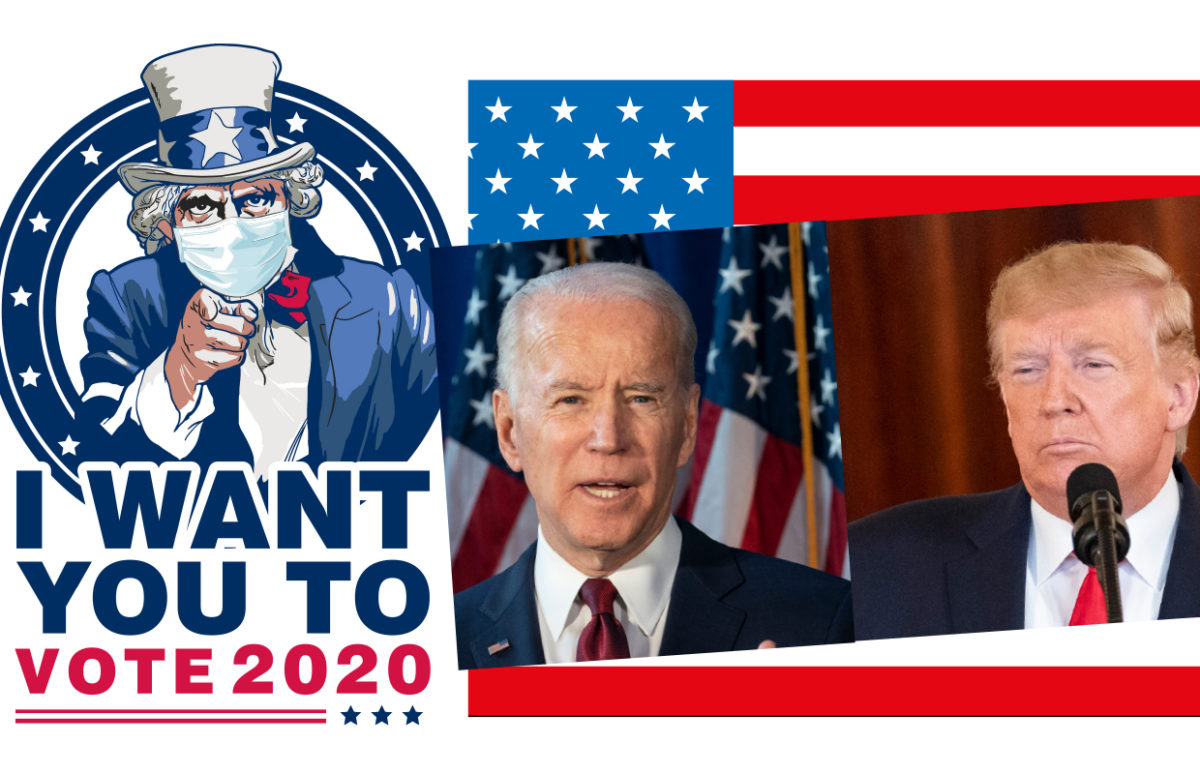It’s already been an unusual election year in the U.S.A., with the later Democratic primaries cancelled because of Covid and delayed party conventions held online. As the virus continues to progress in the U.S.A., what are the possible consequences for the election?
The parties are continuing as near to normal as they can. The focus, as usual, is on the presidential election, but 3 November is also the date when all of the seats in the House of Representatives will be up for re-election, and one third of the Senate.
The Republican ticket for the presidential election is the incumbent President Donald Trump and Vice-President Mike Pence.
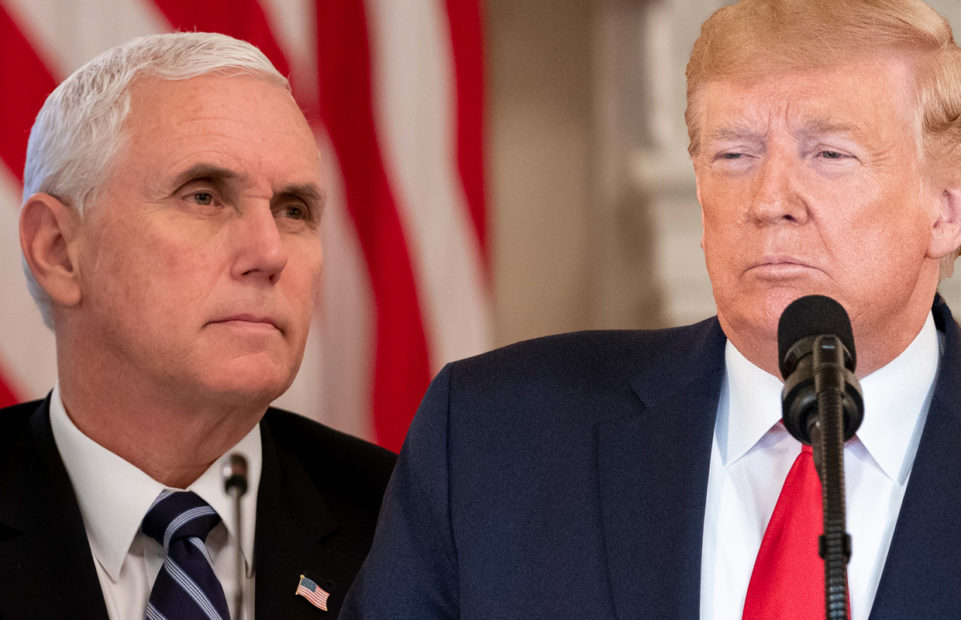
The Democrats finally chose the "safe" option of Joe Biden, Barack Obama's Vice-President for eight years. He has good name recognition and frightens middle ground voters less than his closest rival, the overtly socialist Bernie Sanders. But Biden would be 78 on Inauguration day, the oldest first-term president to take office. (Mr Trump is 74). And his long career as senator for 26 years, and as VP mean there are plenty of past decisions and actions for his opponents to scrutinise.
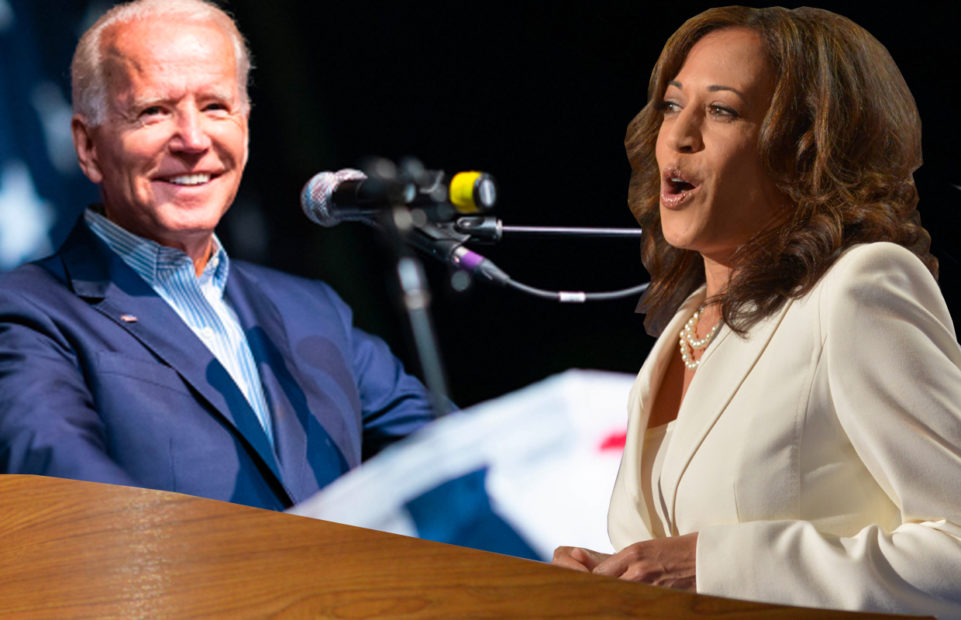
In a sense, therefore, his chosen running mate is his polar opposite. At 55, Kamala Harris has only served one term as Senator for her home state of California, although she was the elected Attorney General of the state for six years, the head of its judiciary. She ticks a lot of boxes in terms of diversifying the ticket. If elected, she would be the first woman VP, and also the first African American, and Indian VP. She is the child of immigrants, a Jamaican Stanford lecturer and an Indian cancer researcher, who met in the U.S. during their studies. She campaigned for the Democratic nomination herself last year, but abandoned before the primaries. The Democratic Party clearly hopes that she will appeal to a younger and more diverse demographic, although some voters are put off by Harris’ background in law enforcement, saying she did little redress institutional racism in the Californian judicial system.
Unconventional Conventions
The conventions are normally the occasion for the parties to decide their platforms of policies for the campaign. This year, however, the Republican Party decided not to vote a new platform since so few delegates were allowed to physically attend the convention. Instead they re-published their 2016 document word for word with a statement saying the party "has and will continue to enthusiastically support the President's America-first agenda". Trump’s team then published a short document setting out his priorities. The Democratic Party debated a full platform.
Some of the key policy promises:
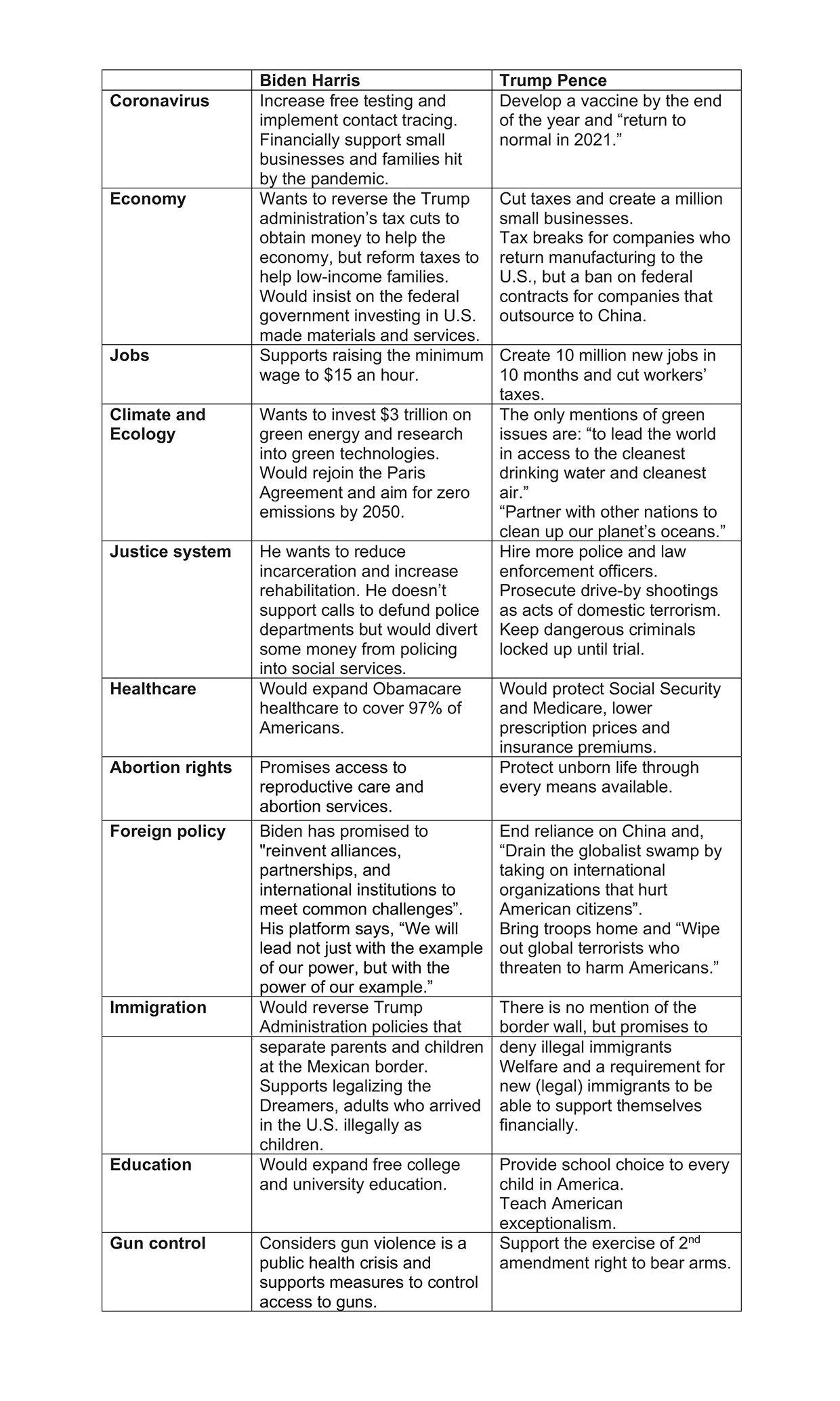
You can download the policy table to use in class. And our B1- resource How to Elect a President.
The Debates
Presidential debates, when the candidates discuss their platforms, have existed since the nineteenth century. Abraham Lincoln’s debate speeches made him famous, and were distributed around the country in printed form.
Since 1976, there have been televised debates at every election. This year there are three debates between Donald Trump and Joe Biden on 29 September, 15 and 22 October and one between the Vice-Presidential candidates on 7 October.
In a year when normal campaigning has been limited, the debates are more important than ever.
Voting
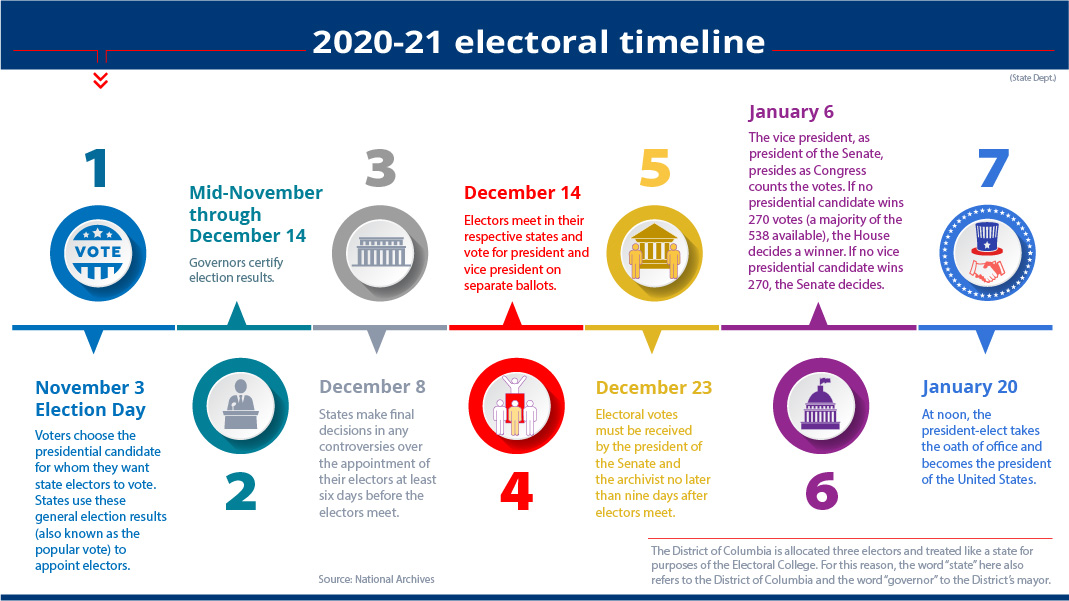
In theory, this State Department graphic gives the milestone dates for the election. However the controversy over postal votes is likely to affect things. The Democrats are pushing voters to ask for postal ballots to avoid problems with physical voting due to coronavirus. The US Postal Service says cuts to its budget by the current Administration, plus the ravages of coronavirus on its frontline staff, means it can’t guarantee that all the votes will arrive on time to be counted.
It seems certain that the results won’t be available on election night in any case. And more than likely that legal wrangles will follow the election alleging irregularities.
Always supposing that rising virus cases don’t result in the election being postponed in the first place.
Copyright(s) :
Shutterstock
U.S. Government
Biden for President
U.S.. State Department
> Goodbye RBG
> Bye-bye Bernie
> U.S. Presidential Marathon
> Getting Closer to the White House
> Caucus vs Primary
Tag(s) : "Biden" "Congress" "EMC" "Kamala Harris" "Mike Pence" "parcours citoyen" "president" "primaries" "Trump" "U.S. elections" "U.S. president" "White House"





